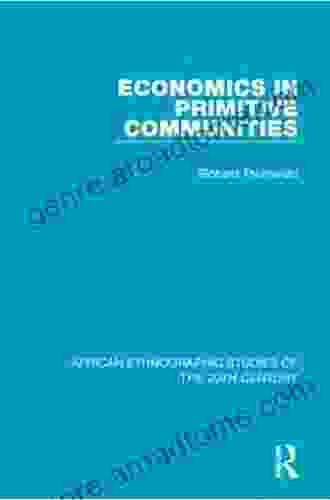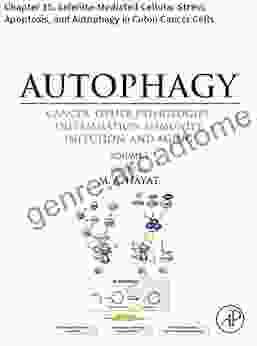Chapter 15: Selenite Mediated Cellular Stress, Apoptosis, and Autophagy in Colon

5 out of 5
| Language | : | English |
| File size | : | 531 KB |
| Text-to-Speech | : | Enabled |
| Screen Reader | : | Supported |
| Enhanced typesetting | : | Enabled |
| Print length | : | 31 pages |
Selenite is a naturally occurring mineral that has been shown to have a variety of health benefits, including anti-inflammatory, antioxidant, and anti-cancer properties. In this chapter, we will discuss the role of selenite in mediating cellular stress, apoptosis, and autophagy in colon cancer cells. We will also provide evidence to support the use of selenite as a potential therapeutic agent for colon cancer.
Selenite and Cellular Stress
Cellular stress is a major contributing factor to the development of cancer. When cells are exposed to stress, they can undergo a variety of changes, including DNA damage, protein misfolding, and oxidative stress. These changes can lead to cell death, either through apoptosis or autophagy.
Selenite has been shown to induce cellular stress in colon cancer cells. This stress is mediated by the generation of reactive oxygen species (ROS) and the inhibition of antioxidant enzymes. ROS are highly reactive molecules that can damage DNA, proteins, and lipids. The inhibition of antioxidant enzymes by selenite further exacerbates this damage. As a result of this stress, selenite induces apoptosis and autophagy in colon cancer cells.
Selenite and Apoptosis
Apoptosis is a form of programmed cell death that is characterized by the activation of specific proteases known as caspases. Caspases cleave a variety of cellular proteins, leading to the dismantling of the cell. Selenite induces apoptosis in colon cancer cells through the activation of the caspase cascade.
The activation of the caspase cascade by selenite is mediated by the generation of ROS and the inhibition of antioxidant enzymes. ROS can directly activate caspases, while the inhibition of antioxidant enzymes allows for the accumulation of ROS, which can then activate caspases. As a result, selenite induces apoptosis in colon cancer cells through a ROS-dependent mechanism.
Selenite and Autophagy
Autophagy is a process of self-digestion that is used by cells to break down damaged proteins and organelles. Autophagy can be activated by a variety of stresses, including nutrient deprivation, oxidative stress, and DNA damage. Selenite has been shown to induce autophagy in colon cancer cells through a ROS-dependent mechanism.
The activation of autophagy by selenite is mediated by the generation of ROS and the inhibition of antioxidant enzymes. ROS can directly activate autophagy-related proteins, while the inhibition of antioxidant enzymes allows for the accumulation of ROS, which can then activate autophagy-related proteins. As a result, selenite induces autophagy in colon cancer cells through a ROS-dependent mechanism.
Selenite as a Potential Therapeutic Agent for Colon Cancer
The ability of selenite to induce cellular stress, apoptosis, and autophagy in colon cancer cells suggests that it may be a potential therapeutic agent for colon cancer. In addition to its direct effects on cancer cells, selenite has also been shown to enhance the efficacy of other anti-cancer agents, such as chemotherapy and radiation therapy. As a result, selenite may be a useful adjunct to current cancer therapies.
Further research is needed to investigate the potential therapeutic benefits of selenite in colon cancer. However, the evidence to date suggests that selenite may be a promising new agent for the treatment of this disease.
Selenite is a naturally occurring mineral that has been shown to have a variety of health benefits, including anti-inflammatory, antioxidant, and anti-cancer properties. In this chapter, we have discussed the role of selenite in mediating cellular stress, apoptosis, and autophagy in colon cancer cells. We have also provided evidence to support the use of selenite as a potential therapeutic agent for colon cancer. Further research is needed to investigate the potential therapeutic benefits of selenite in colon cancer. However, the evidence to date suggests that selenite may be a promising new agent for the treatment of this disease.
5 out of 5
| Language | : | English |
| File size | : | 531 KB |
| Text-to-Speech | : | Enabled |
| Screen Reader | : | Supported |
| Enhanced typesetting | : | Enabled |
| Print length | : | 31 pages |
Do you want to contribute by writing guest posts on this blog?
Please contact us and send us a resume of previous articles that you have written.
 Book
Book Novel
Novel Page
Page Chapter
Chapter Text
Text Story
Story Genre
Genre Reader
Reader Library
Library Paperback
Paperback E-book
E-book Magazine
Magazine Newspaper
Newspaper Paragraph
Paragraph Sentence
Sentence Bookmark
Bookmark Shelf
Shelf Glossary
Glossary Bibliography
Bibliography Foreword
Foreword Preface
Preface Synopsis
Synopsis Annotation
Annotation Footnote
Footnote Manuscript
Manuscript Scroll
Scroll Codex
Codex Tome
Tome Bestseller
Bestseller Classics
Classics Library card
Library card Narrative
Narrative Biography
Biography Autobiography
Autobiography Memoir
Memoir Reference
Reference Encyclopedia
Encyclopedia Ladejola Abiodun
Ladejola Abiodun Simone Janson
Simone Janson Kiyotaka Wasa
Kiyotaka Wasa Zdenek Machek
Zdenek Machek Praveen Gupta
Praveen Gupta Martin Baxmann
Martin Baxmann Kyungsik Choi
Kyungsik Choi Michael Carley
Michael Carley Neil Pasricha
Neil Pasricha Mona Sue Weissmark
Mona Sue Weissmark Kit Poon
Kit Poon Lesa Snider
Lesa Snider Krishna S Mercy
Krishna S Mercy Lamar Boschman
Lamar Boschman Kris Verburgh
Kris Verburgh Madrean Schober
Madrean Schober Stacy E Washington
Stacy E Washington Lane Lasater
Lane Lasater Laura Madeira
Laura Madeira Peter J Gomes
Peter J Gomes
Light bulbAdvertise smarter! Our strategic ad space ensures maximum exposure. Reserve your spot today!
 Dustin RichardsonFollow ·15.1k
Dustin RichardsonFollow ·15.1k Isaias BlairFollow ·5.3k
Isaias BlairFollow ·5.3k Larry ReedFollow ·11.3k
Larry ReedFollow ·11.3k Jorge AmadoFollow ·12.1k
Jorge AmadoFollow ·12.1k Leo MitchellFollow ·11k
Leo MitchellFollow ·11k Doug PriceFollow ·6.3k
Doug PriceFollow ·6.3k Jackson HayesFollow ·2.6k
Jackson HayesFollow ·2.6k Dwight BellFollow ·10.1k
Dwight BellFollow ·10.1k

 Charlie Scott
Charlie ScottQuickBooks 2024 In Depth: Your Essential Guide to...
About the Book Are you ready to elevate...

 D'Angelo Carter
D'Angelo CarterUnlocking the Mysteries of Primitive Economies: A Journey...
Prepare to embark on an...

 Milton Bell
Milton BellUnveiling the Secrets of Agile Coaching: A Comprehensive...
In the ever-evolving landscape...

 Tyler Nelson
Tyler NelsonUnveiling the Treasures of Italy: A Journey of Discovery...
Embark on an enchanting expedition into the...
5 out of 5
| Language | : | English |
| File size | : | 531 KB |
| Text-to-Speech | : | Enabled |
| Screen Reader | : | Supported |
| Enhanced typesetting | : | Enabled |
| Print length | : | 31 pages |
















